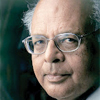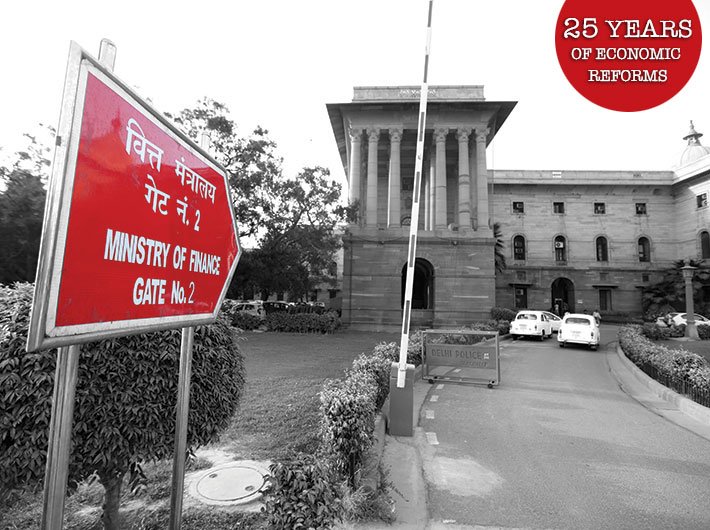"The crisis of 1991 is the most momentous event I was ever involved in", says Ashok V Desai as he remembers the crucial period of 1991-93 when he was chief consultant to the ministry of finance
The crisis of 1991 is the most momentous event I was ever involved in; it is also perhaps when I did the greatest service to my country. But it is also when I met colleagues with sharp knives – a time I try not to remember.
India was the country where I was born and grew up, but not one in which I felt at home. Those great leaders who inherited it from the British had turned it into a socialist country according to their own lights. In my judgment, they had done it terrible harm; and for someone who believed that, there was not much room in my country. In the 1970s, I spent three years teaching in the University of South Pacific in Fiji; in the 1980s, I directed an international energy project in Ottawa. These activities brought me a decent income. My liberal economics was unfashionable in India; but there were enough economists who thought I was good and gave me work.
One of them was PC Joshi in Planning Commission, who asked me to do a study on trade policy in the late 1980s. At that time, the government of India was giving out a million import licences. The ministry of commerce had shops in every city. Industrialists had first to go to the industry ministry and get a no objection certificate which said that the ministry did not mind if the licence bearer imported some spare part which went into some industrial product. Then their representatives went to shady men in back alleys with cash, queued up outside the shops of the commerce ministry, and got import licences, which they could sell at a profit of a few hundred per cent. It was a great business – one that it would have been dangerous to hurt. Every year, the commerce ministry published a handbook of imports and exports which specified the restrictions.
In 1991, P Chidambaram became commerce minister; he decided to do away with import licences for industrial inputs and machinery. But if he had told any of his bureaucrats, they could have leaked out the news and made money; importers who made money from illegally acquired licences would have been incensed and tried to remove him. So he did not let his chief controller of imports and exports into his plan; he wrote out the import-export handbook in his own hand, got it printed in the government press overnight and made it public. The CCIE’s office lost most of its work; so did the clerks of the industry ministry responsible for issuing no objection certificates. They were so incensed that they went to kill Chidambaram. Luckily he was not in his room; so they damaged the door and left. Chidambaram was my first hero of the reforms.
Almost at the same time, the government abolished industrial licensing, and allowed industrialists to manufacture whatever they liked. Who did that? The minister of industry. Who was he? I had no idea. Many years later, I wondered, and rang up my reformist friend from the government of that time, Rakesh Mohan. “Rakesh, you removed industrial licensing in 1991,” I said, “Who was your minister?” “Narasimha Rao; didn’t you know?” he said. All the reforms had to have his approval, or had to be initiated by him. But someone had to make sure they were done. That was Amarnath Verma, his principal secretary. While I was in the finance ministry, Verma called a meeting of all economic secretaries once a fortnight. Each of us would speak – report on what had been done and our ideas about what should be done next. After we had all rambled away for a couple of hours, he would say, “Well, gentlemen, this is what we have concluded, and this is what we have decided.” He would then give a succinct summary of our next steps. Amarnath Verma was the conductor of the Delhi Reform Orchestra. After he retired, he used to call some of us friends to discuss the state of the economy; that is when I came to know him as the silent power behind the reforms. He is my second hero.
I never found out the name of my third hero. He wrote a note of the International Monetary Fund I found in the file at the top of the pile when I entered the room of chief economic advisor in 1991. It listed the reforms that the IMF wanted us to do before it gave us the next tranche of emergency loan – the last one taken by the government. They were reforms that were obvious to me – such as reducing tax rates to levels that were affordable to honest people and not a boon to tax evaders. I found them all perfectly reasonable, wrote so and sent the file up. That, for me, was the beginning of the reforms.
The author was chief consultant to the ministry of finance, during the crucial period of 1991-93
(The column appears in the July 16-31, 2016 issue of Governance Now)

